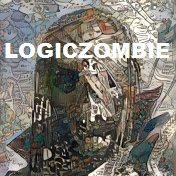Theory of Human Behavior Part 2
Before I can delve beneath the motivations we have names for, I must digress. In order to understand my theory of human behavior we need to agree on a few points about animal instinct.
It is widely accepted that animals act largely on what we call instinct. This idea of instinct isn't very well defined, but it is assumed that the behavior is "pre-programmed" somehow, perhaps genetically (although this is only an assumption). No one knows exactly where these instinctive instructions are stored. No one has ever created a new instinct in an animal, or even modified an existing instinct. However, by manipulating the environment in which an organism resides, we can sometimes force it to adapt. It "learns" that if it co-operates it will get some reward. We call this, training or conditioning. Learned behavior is separated from instinct because it can be manipulated. I believe however that how easily an animal can adapt or "be trained" is based on its instinct. This is often referred to as an animal's "nature". Its "nature" does not change. An animal's ability to adapt is directly controlled by its instincts. This is why we can't "tame" many wild beasts, even if they are separated from their mothers at birth and never "learn" any wild behavior.
Human beings on the other hand, have a phenomenal capacity to adapt. This is because we have only basic instinctive directives. If we had complex or explicit instincts we would suffer from the same limitations as many animals on the endangered species list. Complex instincts always assume the creature is in its native setting. If a koala instinctively eats only eucalyptus leaves, the koala species will die without an adequate supply of nutrition from that one source. It has no capacity to adapt because instinct does not change. When their native environment changes their instincts are no longer valid. Because their basic nature cannot change they begin to die off. The more complex or specific the instinct, the less adaptable the organism is. Rats for example have only a rudimentary instinct regarding their nutrition, the directive is simply to eat, and does not specify any particular type or even category of food. This makes rats, as a species, very adaptable and consequently very successful.
If humans followed the model of the koala, there would be different sub-species of humans for each inhabited part of the planet. One type of human would not be able to survive outside of its native habitat. This is not the case. If we take a child from any race and raise it in another environment, geographical or technological, the child will fully adapt and even thrive. One example of this is when Native American children were caged and taken to Europe. These "Savages" began to imitate the spectators, learned the language and eventually were given the chance to be educated and exhibited the same capacity for learning as any other human.
So the question is, how much of human behavior is instinct and how much is learned? To answer this question in the space allotted here, I simplify all behavior to an idea of right and wrong. There has been research done that shows there are a few universal ideas of right and wrong that we share with every human culture. Where do these "universal truths" come from? I believe our ideas of right and wrong can be traced back to genetically implanted instinct to promote the propagation, health and advancement of the human species. A few examples of these accepted truths are, thou shall not kill, thou shall not steal, and thou shall not commit adultery. Each of these laws serves to promote the health and propagation of a peaceful society, preserving the largest possible number of species members. So why do we break these laws? It is because of our genetically implanted desire to compete. We seek out conflict so the best-adapted ideas and genetic code will dominate in order to benefit the species overall. This is important because we are in competition with other species (including diseases and bacteria) and with our changing environment. The model of instinctive priority is first to protect the individual, then genetically similar (family) then geographically similar (city, state, country) then all human life, and then all other forms of life.
To sum up, we humans are highly adaptable organisms who have a conflicting set of directives. We are "programmed" to preserve life, but at the same time we have a primal need to compete and dominate.



ZOMBIEBASICTRAINING
Copyright notice: Feel free to copy and paste any LOGICZOMBIE original content (posts and or comments and or replies, excluding quoted 3rd party content of course) according to copyleft principles. copyleft link
Use the tag #LOGICZOMBIE if you'd like your post critiqued for logical coherence.
+proHUMAN +proFAMILY
Your scathing critique is requested.
Very nice post @logiczombie,
You are being rewarded with 500 Hobo tokens. These tokens are used to submit your own informative blog post or another person's post into our regular contests.
You can learn more about our contests here:
HoboDAO Contests